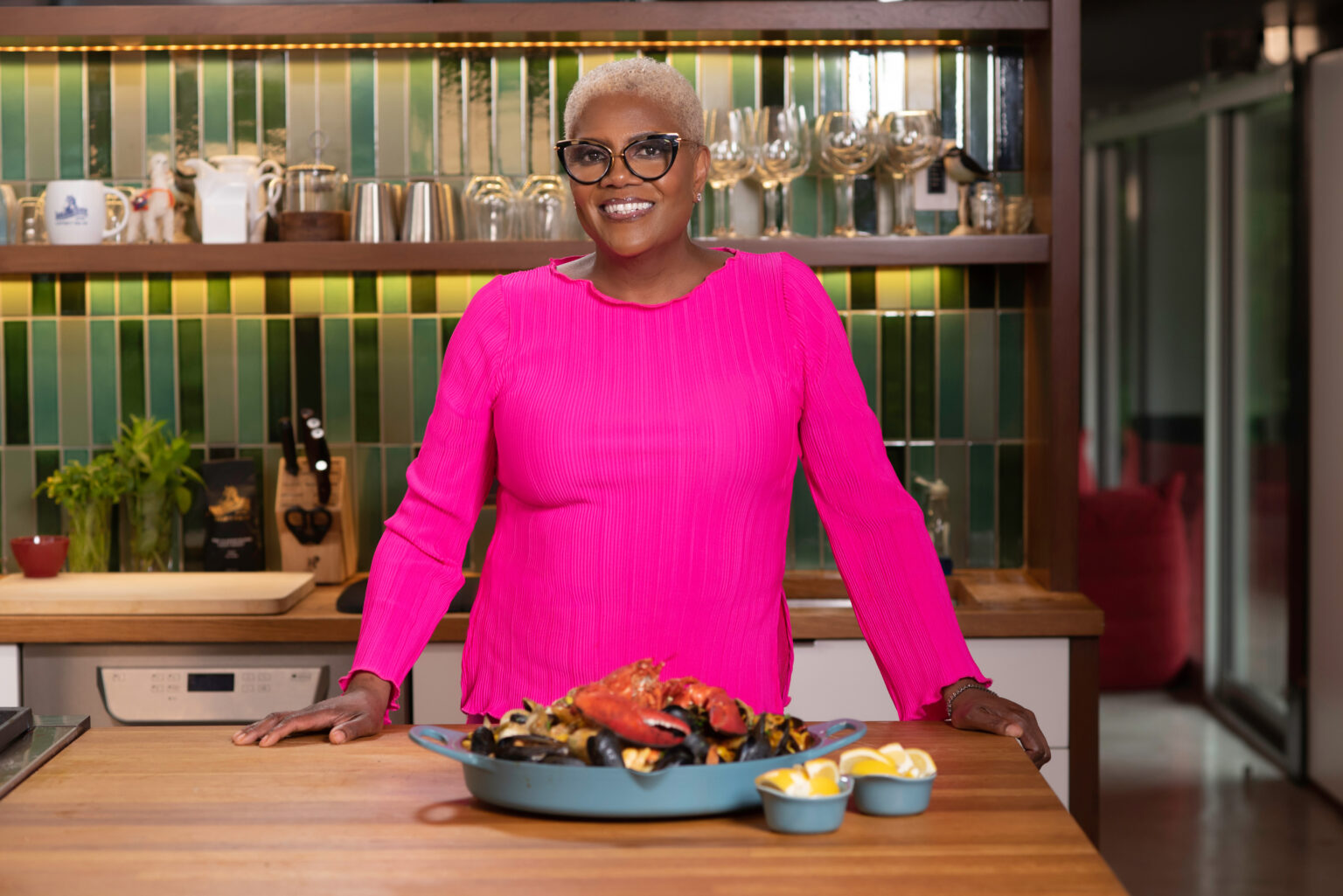Long before a celebrated Atlanta chef realized her dream of hosting a cooking show, she knew the main ingredient. She would share what traveling the globe had taught her about the world of soulful southern comfort food.
“I think it has a more worldly, global aspect. There’s just something about It that brings me peace, harmony and hope. Through food, it’s a bigger place, a bigger message than just feeding our faces,” says Deborah VanTrece, the award-winning owner of two restaurants.
The FYI Network’s “Global Soul Kitchen” premiered on September 2. The TV show gives VanTrece a national stage for presenting her view of the international link between Black America’s soul food and the cuisines of different countries.
“It connects to so much that is a part of our society, our culture and everyone else’s. I like having this platform to say that, to get up on my soapbox and say this about food,” declares VanTrece.
The Journey to Global Soul Kitchen
The CEO and founder of VanTrece Hospitality Group first thought about a television show when she was a youngster fixing dinner for her working mom. Over the years, her love of cooking and entertaining led the Kansas City native to professional kitchens and an extensive study of the element of soul in southern food and international cuisines.
“No matter who you are, if you’ve ever had a memory from a family meal that brought you so much joy and love, the memories of that food feed your soul,” VanTrece explains. “That is soul food. That is what it does. It doesn’t just feed us nutritionally. It feeds us from the heart. It feeds us from deep inside.”
VanTrece’s view of soul food expanded beyond the Southern traditions that shaped her culinary experiences in the Midwest. When she married a professional basketball player and later became a flight attendant, her travels introduced the avid cook to international meals that reminded her of food she’d previously seen on African American women’s tables.
“Looking at these other places and the soulful ingredients I found, I see them on an ambassador’s or prime minister’s table in different countries. At the markets in Europe, Argentina and other places, I see food I could only find in the United States pretty much in Black neighborhoods being sold in these top markets,” VanTrece states.
The kind of food the chef began to envision during her travels appears today on the menus of Atlanta’s Twisted Soul Cookhouse & Pours and Oreatha’s at the Point, a restaurant named after VanTrece’s mother.
The offerings celebrate Southern cuisine with international influences and the mother’s love added to dishes all over the world. They include such creations as house-smoked salmon egg rolls, smothered turkey drumstick osso bucco, oxtail lasagna and Thai seasoned catfish and grits.
The restaurateur’s virtual appearance on the “Rachel Ray Show” during the COVID pandemic got the attention of the celebrity host. Ray and her partners at Free Food Studios appreciated what VanTrece could offer in a cooking show about her global soul cuisine and culinary adventures. It allows her to tell the stories behind what people in her world hear and see regularly.
“I’m very proud of that. It’s basically giving you a little glimpse, as one person told me, of the twisted mind of chef Deborah,” she says.
By Phyllis Armstrong


